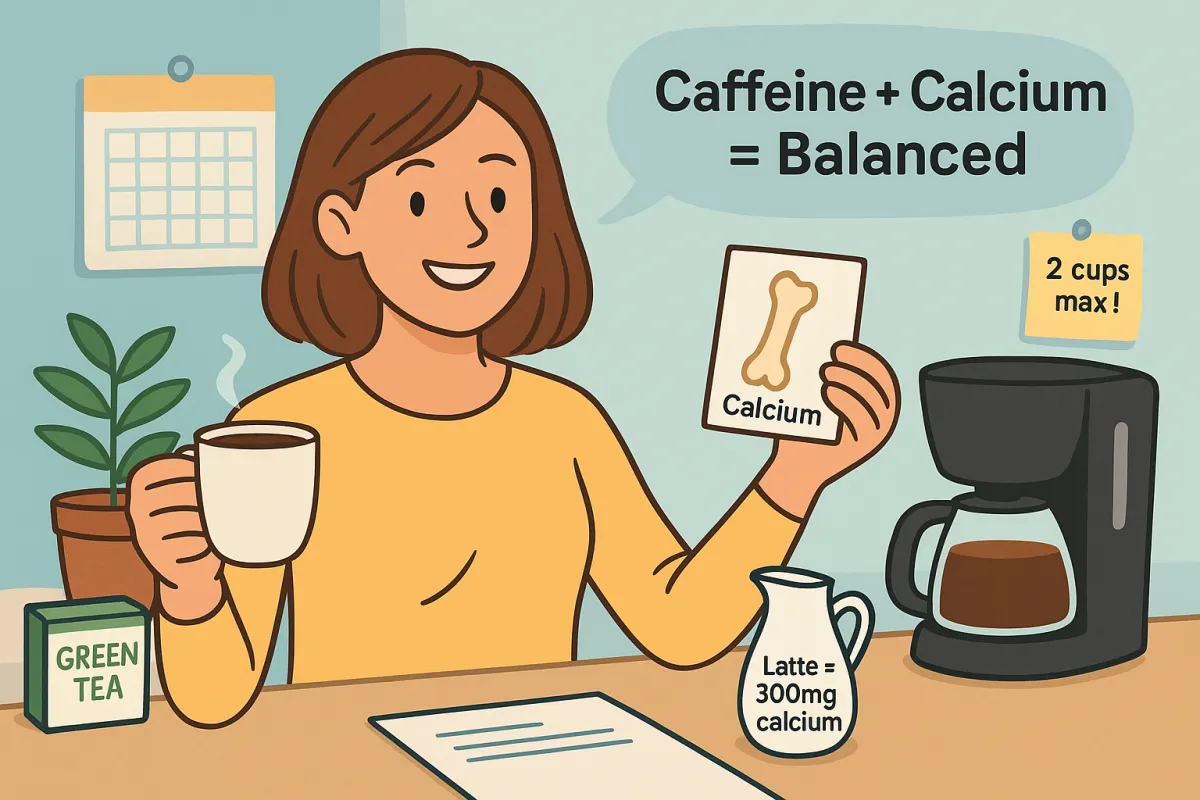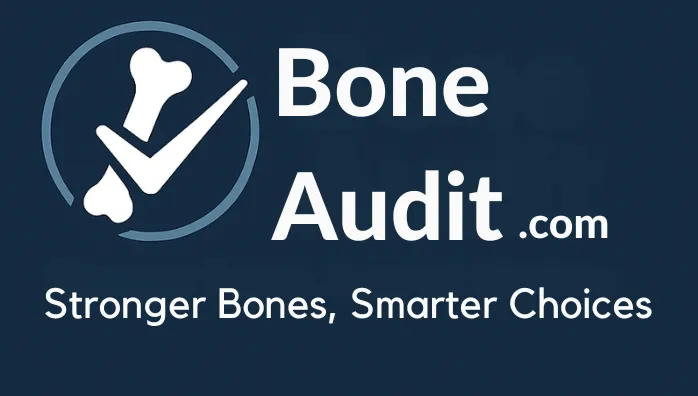
Caffeine and Your Bones: How Much is Too Much?
When it comes to bone health, caffeine often gets a bad rap. You might have heard that coffee leaches calcium from your bones — but is that really true?
Let’s cut through the confusion.
The Truth About Caffeine and Calcium
Caffeine can increase calcium loss — but only slightly, and mostly when your calcium intake is already low.
In fact, research shows that 1 cup of coffee may cause a loss of about 4–6 mg of calcium.
To put that in perspective:
One tablespoon of plain Greek yoghurt provides about 50 mg of calcium.
So for most people eating a balanced diet, that extra loss is not significant.
✅ Bottom line: Caffeine only becomes a real issue if you’re already low in calcium.
Hidden Bonus: Coffee with Milk
If you add milk to your coffee, you may be doing your bones a favour.
A standard latte made with dairy milk contains 150–300 mg of calcium, depending on the milk and size.
This more than offsets any minor loss caused by the caffeine.
✅ If you tolerate dairy, your morning latte can actually be a net positive for bone health.
Are There Any Benefits to Caffeine?
Yes — in moderation, caffeine can have several upsides:
May improve muscle strength and reaction time
Can increase alertness and energy (which may lead to more activity or exercise)
Some studies show green tea polyphenols may support bone health
Like anything, it’s all about dose and context.
How Much Caffeine is Safe?
Most studies suggest that moderate caffeine intake is not harmful to bones.
That typically means:
✅ Up to 300 mg of caffeine per day (roughly 2–3 cups of coffee)
❌ Above 400–500 mg daily may increase bone loss, especially in older adults or those with low calcium intake
What About Calcium Absorption?
There’s some evidence that caffeine can slightly reduce calcium absorption — but this can be offset by:
Getting enough calcium overall (food or supplement)
Taking calcium supplements or calcium-rich meals away from your strongest caffeine hits
Are All Caffeinated Drinks the Same?
Not quite.
Coffee: The most studied. Safe in moderation.
Tea (especially green tea): Contains caffeine, but also polyphenols that may support bone health.
Energy drinks: Often contain excess caffeine, sugar, or additives — best avoided.
Should You Cut Back?
You don’t need to quit your morning coffee — just be mindful.
✅ Tips for bone-friendly caffeine habits:
Stick to 2 cups or less per day
Take calcium supplements at least an hour away from coffee
Enjoy coffee with milk to balance calcium loss
Swap to green tea or decaf for your second or third cup
Make sure your overall calcium intake is solid (1000–1200 mg/day)
Final Thought
Caffeine doesn’t need to be the villain — as long as your nutrition is on point.
If you love your coffee or tea, enjoy it mindfully — and consider it part of your daily rhythm, not your downfall.
☕ Bone health is about the whole picture, not just one habit.
